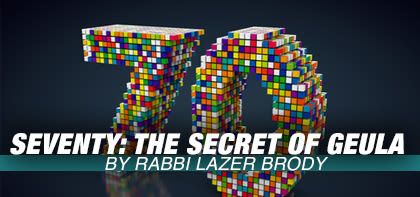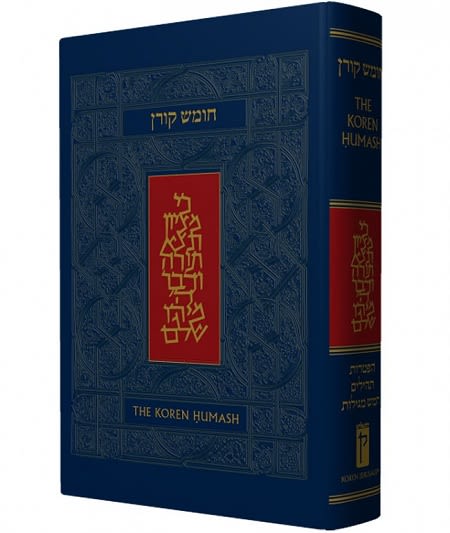
Seventy: The Secret of Geula
In 2017, Israel celebrated 70 years of independence: seventy years was the period of exile between the First and Second Holy Temples. "Seventy" is the deep secret of Geula...

The Gemara in Tractate Taanit tells the story of one of the most pious Tannaic sages, Choni Hama’agal. Choni was a prodigious Torah scholar among prodigious scholars, but he questioned the first passage in Psalm 126: “A song of ascents, when the captivity of Zion returns, we will be like dreamers“. According to Rashi, the Psalm’s intention is that after the seventy-year long Babylonian exile, when the Jewish People return to Zion, the exile will seem like a long dream. The inner meaning, which Choni understood but took literally, was that a person is capable of sleeping for seventy years. He couldn’t reconcile himself with this concept, which seemed exaggerated to him.
Choni knew the workings of Torah. He understood that the wording of the Psalm was allegorical, for it said “like dreamers” rather than “dreamers.” Nevertheless, he also knew that anytime the Torah speaks in allegorical terms, the simple meaning of the allegory is also relevant. Therefore, if a man cannot actually sleep seventy years, then the passage would not compare the seventy years of exile to a long dream. Since there is no room for the slightest doubt in the veracity of Torah, Hashem decided to show him that such a phenomenon is indeed possible.
The Gemara continues to tell the story: one day, Choni was riding along the countryside on his donkey. He felt a tremendous fatigue, so he got off his donkey to rest. In a nearby field, he saw an old man planting a carob tree. Choni asked the man when this newly planted tree would bear fruit. The old man told him that this type of carob bears fruit only seventy years after one plants it. Choni inquired, “Do you intend to eat from this tree?”
“Just as my ancestors made sure that when I came into the world, I would find fruit trees that I could eat from, so too am I making sure my offspring will have fruit trees available when they come into the world,”  replied the old man. A responsible generation should anticipate and fulfill the needs of subsequent generations.
replied the old man. A responsible generation should anticipate and fulfill the needs of subsequent generations.
With heavy eyelids, Choni laid down near the newly planted carob seedling and fell into a deep sleep. Hashem made sure that no one would notice him or disturb him. Seventy years later, he woke up. He knew that seventy years had transpired for he saw that this tree – a seedling when he first fell asleep – was now bearing carobs. He then acknowledged the absolute truth of Torah that it is indeed possible to sleep for seventy years.
What’s the significance of seventy years? Why did Hashem put Choni Hama’agal to sleep for seventy years and not for sixty-nine, seventy-one, or any other number? Remember, seventy years was the period of exile between the First and Second Holy Temples. “Seventy” is the deep secret of Geula, as we shall soon see, with Hashem’s loving grace.
Elaborating on the inner meaning of seventy years, Rebbe Natan of Breslev explains that if a person is in spiritual slumber for up to seventy years, he has a chance of waking up. After seventy years, there is no chance. This is a secret that not only Rebbe Nachman and Rebbe Natan knew, but Pharaoh, Belshazzar and Haman knew full well thousands of years previously.
Belshazzar was the third King of Babylon. His grandfather Nebuchadnezzar, who destroyed the First Holy Temple, had ruled for forty-five years, his father Avil Merodach ruled for twenty-three years and he ruled for slightly less than two years. Belshazzar made a fateful miscalculation: he thought that the seventy years of Israel’s exile in Babylon had terminated. Since the Redemption had not yet come, he thought that Hashem would never let the Jews return to Zion and rebuild the Holy Temple. He therefore had a feast with his harlots and drank from the holy vessels that his grandfather had seized from the Temple in Jerusalem. He was soon killed and Babylon fell to Persia, as Daniel had prophesied. The strong-armed horse trader Achashverosh seized power and married Belshazzar’s daughter, Vashti, using her to legitimize his ascent to the throne.
Haman, a descendant of Amalek and the mafia-kingpin Achashverosh’s right hand man, was just as evil as Mordechai the tzaddik was righteous. He knew that Belshazzar had made a terrible mistake, but like Amalek who attacks silently as a snake, Human used a different strategy to prevent the rebuilding of the Holy Temple and the awakening of the Jews from exile now that the seventy years were over. He masterminded the royal coronation ball and put the Jews on his guest list, making sure that they would be lured into mingling with Persian women while drinking and dining with them. Their participation in the ball incurred the terrible decree of annihilation on them, which Hashem in His mercy turned around by way of Esther and Mordechai. Haman intended that the wine, the women and the food would put the Jews into a permanent spiritual slumber so that he could destroy them, for our sages teach that when the hand of Moses – Torah and teshuva – is raised, Amalek falls. Yet, the opposite is also true: when Torah and teshuva are on the decline, Amalek arises to power. According to Rabbi Avigdor Miller, this is what triggered the Holocaust.
One can’t understand Pharaoh’s abstinence. Why didn’t he wake up during the initial plagues, before Egypt suffered such devastation by way of the Ten Plagues and the rout at the Red Sea? If I’m not mistaken, Pharaoh too knew the secret of seventy years. It’s no coincidence that the Torah tells us that Jacob and his offspring counted seventy at the start of the Egyptian exile. Pharaoh, also an evil soothsayer who tried to sell himself off as a deity, saw that Israel had been in bondage for three cycles of seventy years, or 210 years. He knew that three constitutes an established pattern and believed that now, the Jews would never leave Egypt, a fact that the Haggadah of Passover verifies. He thought that his witchcraft – which did not enable a single slave to leave Egypt – was stronger than the G-d of Israel, Heaven forbid. He soon learned otherwise. As such, the Haggadah says that only Hashem – not an angel, even the strongest – was capable of taking us out of Egypt.
The spiritual common denominator between the Israelite slaves in Egypt and the Jews in Babylonia and Persia at the time of Haman was spiritual slumber. Their preoccupation with this world made them forget the world to come. Rebbe Nachman therefore says that spiritual slumber and forgetfulness go hand in hand.
The spiritual slumber is still here today. This year (2018), we celebrate the seventieth year of the State of Israel. True, the State of Israel has become a shelter for Jews the world over. Yet, ever since the modern return to Zion, secular Zionism has been doing everything in its power to disparage the age-old holy traditions of G-d fearing Jews and substitute their deep belief for a meaningless, modern, melting-pot secular mentality that has long since gone bankrupt. Many of our spiritual leaders have referred to this moral breakdown as a painful exile in itself, an “exile among Jews.”
The Torah tells us that we have no right to the Land of Israel without observing the Torah on its holy soil.
Hopefully, during this critical year, Hashem will send a spirit of teshuva and emuna among our people and bring us the true Geula, the full Redemption of our people that we all long for, including the coming of Moshiach and the rebuilding of our Holy Temple in Zion, speedily in our days, amen!












Tell us what you think!
Thank you for your comment!
It will be published after approval by the Editor.